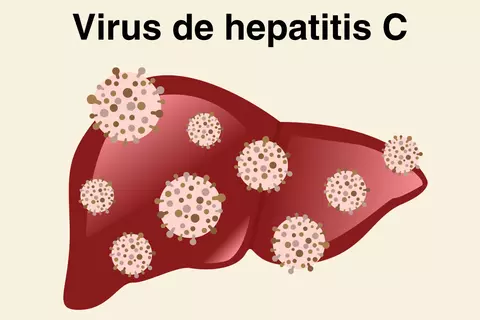Recompensation of decompensated liver cirrhosis after antiviral therapy for chronic hepatitis C infection
Premkumar M et al, Gastroenterology. 2024;167(7):1429-1445
In this prospective cohort of individuals with decompensated HCV-related liver cirrhosis, it was shown that antiviral therapy leads to recompensation in around 25% of individuals after 4 years of follow-up. New decompensation events occurred in around 20% of individuals, despite successfull HCV therapy.

Background and aims: Chronic hepatitis C-related decompensated cirrhosis is associated with lower sustained virological response (SVR)-12 rates and variable regression of disease severity after direct-acting antiviral agents. The authors assessed rates of SVR-12, recompensation (Baveno VII criteria), and survival in such patients.
Methods: Between July 2018 and July 2023, patients with decompensated chronic hepatitis C-related cirrhosis after direct-acting antiviral agents treatment were evaluated for SVR-12 and then had 6-monthly follow-up.
Results: Of 6516 patients with cirrhosis, 1152 with decompensated cirrhosis (age 53.2 ± 11.5 years; 63% men; Model for End-stage Liver Disease-Sodium [MELD-Na]: 16.5 ± 4.6; 87% genotype 3) were enrolled. SVR-12 was 81.8% after 1 course; ultimately SVR was 90.8% after additional treatment. Decompensation events included ascites (1098; 95.3%), hepatic encephalopathy (191; 16.6%), and variceal bleeding (284; 24.7%). Ascites resolved in 86% (diuretic withdrawal achieved in 24% patients). Recompensation occurred in 284 (24.7%) at a median time of 16.5 (interquartile range, 14.5–20.5) months. On multivariable Cox proportional hazards analysis, low bilirubin (adjusted hazard ratio [aHR] = 0.6; 95% confidence interval [CI]: 0.5–0.8; p < 0.001), international normalized ratio (aHR = 0.2; 95% CI: 0.1–0.3; p < 0.001), absence of large esophageal varices (aHR = 0.4; 95% CI: 0.2–0.9; p = 0.048), or gastric varices (aHR = 0.5; 95% CI: 0.3–0.7; p = 0.022) predicted recompensation. Portal hypertension progressed in 158 (13.7%) patients, with rebleed in 4%. Prior decompensation with variceal bleeding (aHR = 1.6; 95% CI: 1.2–2.8; p = 0.042), and presence of large varices (aHR = 2.9; 95% CI: 1.3–6.5; p < 0.001) were associated with portal hypertension progression. Further decompensation was seen in 221 (19%); 145 patients died and 6 underwent liver transplantation. A decrease in MELD-Na of ≥ 3 was seen in 409 (35.5%) and a final MELD-Na score of < 10 was seen in 335 (29%), but 2.9% developed hepatocellular carcinoma despite SVR-12.
Conclusions: Sustained virological response (SVR)-12 in hepatitis C virus-related decompensated cirrhosis in a predominant genotype 3 population led to recompensation in 24.7% of patients over a follow-up of 4 years in a public health setting. Despite SVR-12, new hepatic decompensation evolved in 19% and hepatocellular carcinoma developed in 2.9% of patients.